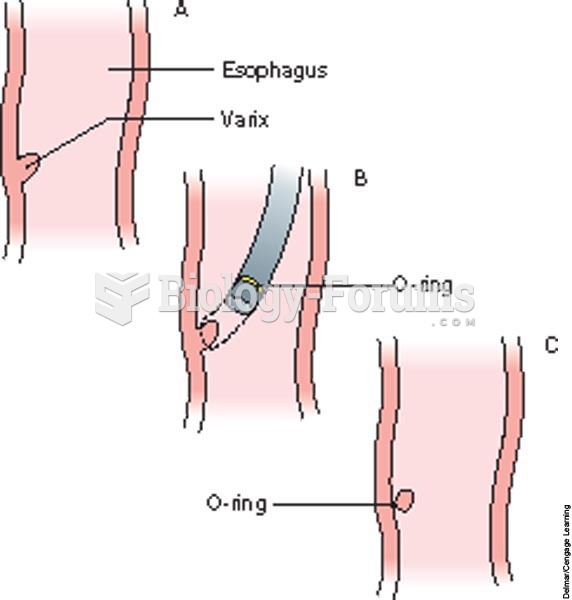This topic contains a solution. Click here to go to the answer
|
|
|
Did you know?
It is important to read food labels and choose foods with low cholesterol and saturated trans fat. You should limit saturated fat to no higher than 6% of daily calories.
Did you know?
Autoimmune diseases occur when the immune system destroys its own healthy tissues. When this occurs, white blood cells cannot distinguish between pathogens and normal cells.
Did you know?
The most destructive flu epidemic of all times in recorded history occurred in 1918, with approximately 20 million deaths worldwide.
Did you know?
The heart is located in the center of the chest, with part of it tipped slightly so that it taps against the left side of the chest.
Did you know?
Malaria was not eliminated in the United States until 1951. The term eliminated means that no new cases arise in a country for 3 years.
 Photograph taken during a laparoscopic procedure. The fundus of the uterus is visible below the prob
Photograph taken during a laparoscopic procedure. The fundus of the uterus is visible below the prob
 Banding of an esophageal varix; A, varix; B, insertion of tube with O-ring; C, O-ring is placed arou
Banding of an esophageal varix; A, varix; B, insertion of tube with O-ring; C, O-ring is placed arou





